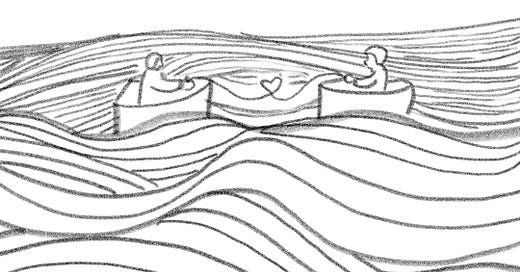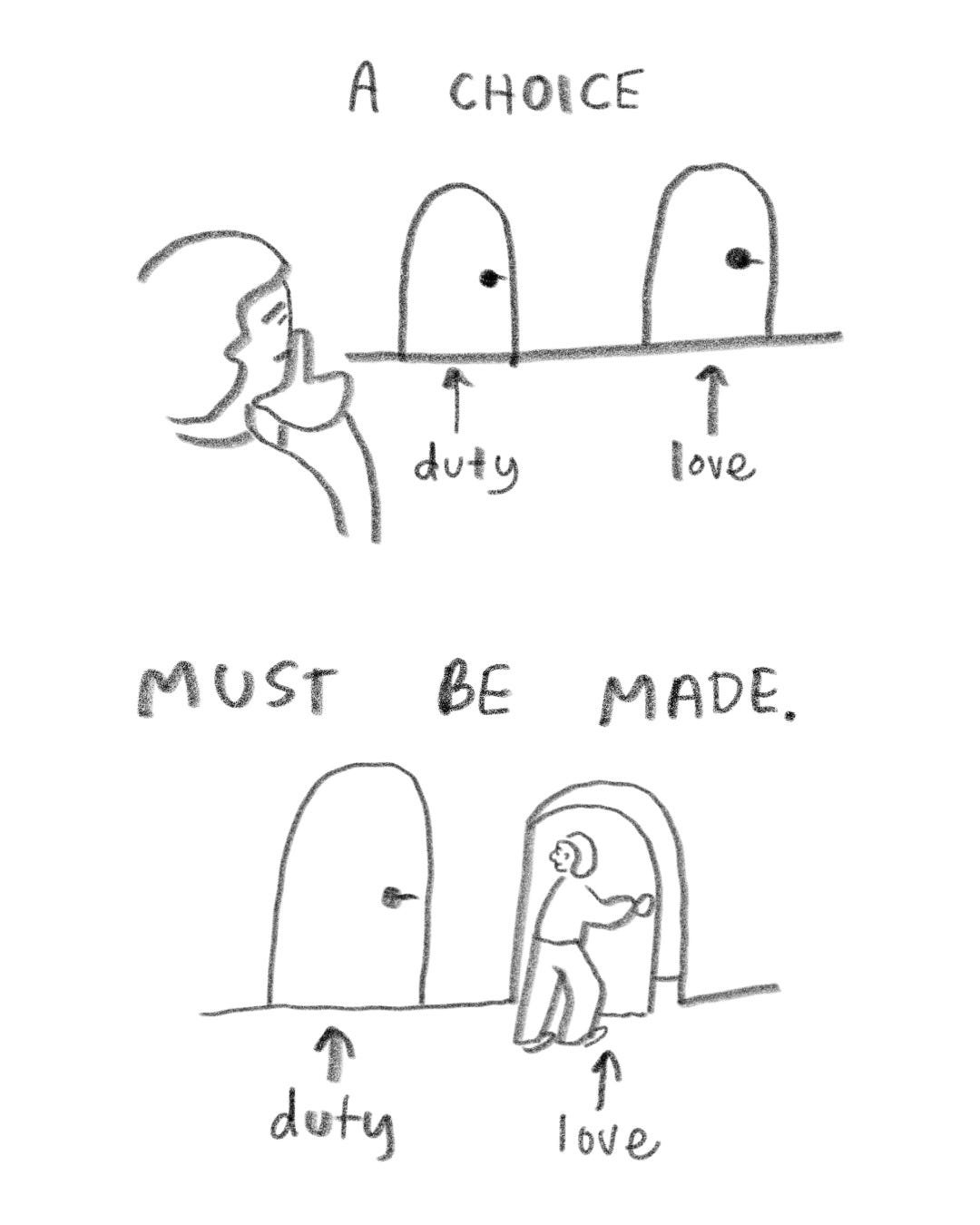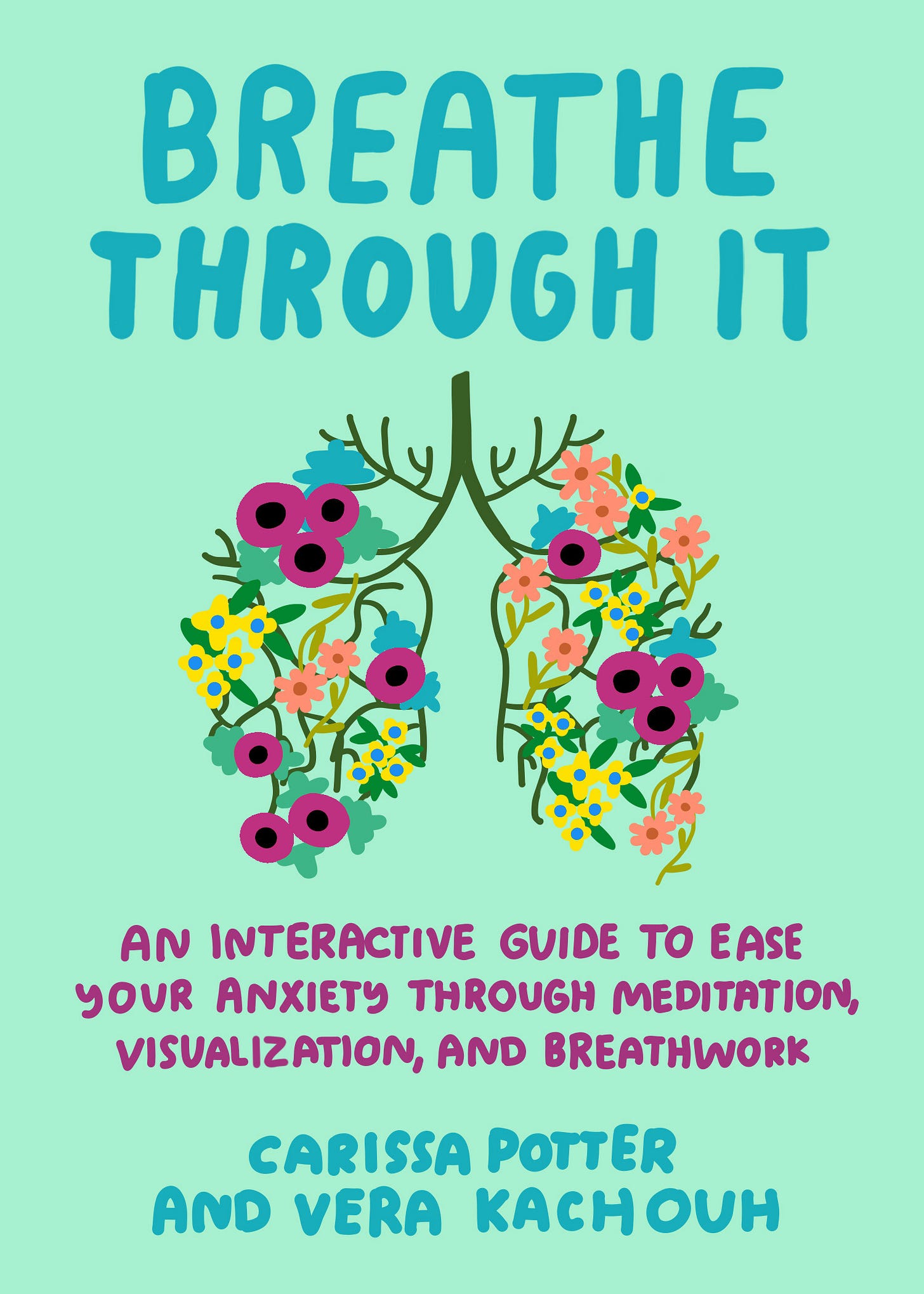This week, I reflect on my struggles with self-worth, parenting, and relationships, using my child's experiences with rejection to examine my own fears. Through therapy, I am in the process of challenging the belief that my partner stays out of duty rather than love, ultimately realizing I have the power to choose a new perspective.
Last Week, I Think I Had a Breakthrough
Let me tell you—it wasn’t as exciting as you might think. It happened during therapy. The breakthrough? My partner might be staying with me because he actually likes me.
Yes, we’ve been together for 15 years. Fifteen years. Not long enough to fully know someone, but not short enough to not know them either.
Let me start at what I think is the beginning.
M has been coming home from school crying, saying the other kids don’t want to play with her. It’s one of those topics that cuts me so deeply, right into the core of who I am, that I don’t quite know what to do. All I can do is sit with it—sit with her, sit with the child in me who aches for her, who feels old wounds cracking open again.
For those of you with kids, I know I’ve said this before: there is a very real, porous border between you and them. The ways we feel—for each other and for our own pain—are tangled. I don’t say this to shift attention away from what M is going through, but just to note that we’re in this together. I’m trying to balance reassuring her that she will be okay while also reassuring myself. I am definitely not doing this perfectly, but I am trying to learn.
We signed M up for a preschool co-op in 2023 after her school unexpectedly closed. I convinced Josh that the workload of a co-op was something I could handle—because I wanted to handle it. He reluctantly said yes but made it clear that he wouldn’t be attending the meetings.
Who here has a track record of signing up for things they think they can manage, only for their partner to eventually step in? Oh yes. That would be me.
As part of the co-op, I get the privilege of being a working parent at M’s school once a week, which means I see firsthand how the other kids are rejecting her. I watch it unfold in real-time, and there’s a clear pattern. M has an idea for what she wants to play, so she asks a kid who is already engaged in something else. The kid says no—because, duh, they’re busy saving the world with a secret potion, knee-deep in a sandcastle war. They want to keep playing their game, not stop abruptly and do whatever M is advocating for.
Watching this process is painful. The heartbreak is visible. The rejection is real.
In those moments, my instinct has been to sit with M and validate her feelings. To tell her I see her pain. But this isn’t working. The crying intensifies. And then, inevitably, I start to spiral. Why am I such a horrible mom? Why do people hate me? M is so lovable—it’s unbearable to watch her suffer in her own delusions. In my own delusions.
I know what you might be thinking—I must be a terrible parent (also cognitive distortion, I know). But hear me out.
Something I always wanted as a child was to feel seen. To have someone sit with me through the hard moments, not rush me through them. And I want to offer that to M. To let her figure it out. I value authentic emotions far more than contrived ones.
But is this approach actually serving her? I don’t know. In some ways, I wonder if it’s hurting her instead.
As an outsider—not M, not her preschool friends—it’s clear to me that the other kids do want to play with her. They just don’t want to do exactly what she wants to do. A compromise must be made—both for M and for the way I’ve been looking at the world.
People want to play with me, goddammit. And they want to play with M.
So last week, I started trying something new. Instead of just validating her feelings, I began narrating the situation for her—helping her understand that the kids aren’t rejecting her, they just have their own games, their own ideas. The challenge is balancing all her needs: her desire to do what she wants, her need to feel seen, and her longing to connect with other kids.
But first, I have to learn how to do this myself.
Case in point: my marriage.
For years, I’ve been telling myself a particular story: that Josh stays with me out of duty. I built this theory from watching his mother care for his father’s father. She didn’t want to do it, not entirely. There was resentment there, and yet she showed up for this man. Again and again. It was beautiful. Her love for her late husband still shows up in the small, quiet ways she moves through life.
I was explaining this to my therapist. She asked me, Why do you think Josh stays with you?
And my gut response was: Because life with me is painful. Because I am difficult. Because why else would he stay except out of obligation?
She stopped me there. She told me I was being deeply unfair to Josh.
But I had been telling myself this story for years—that we stayed together out of duty, inertia, habit. That we were two bodies of flesh and bone, carried forward only by the momentum of our past choices, not by love or companionship, but by the sheer inability to change.
And yet, when I think about it, life itself feels so special.
The number of decisions—small and large—that had to be made for us to end up here, just as we are, is awe-inspiring. Josh and I were meant to be—not because of some pre-planned, romanticized notion of destiny, but because of something deeper. Something unknowable. The strange, miraculous alignment of reality as it is.
The assumption that he stays out of duty was, at its core, a way for me to cope. A way to shield myself from the fear of rejection. But in truth? That assumption was not helping me. It was blinding me.
What if the real answer is that Josh stays because he loves me?
What if that means I am worthy of love?
What if love doesn’t mean always wanting to do the same thing at the same time, but rather just wanting to be in the same sandbox?
It feels good to sit with this idea.
That duty is just one thread in a massive, intricate web of time, choices, and desires that I will never fully comprehend. That now, knowing I have a choice—to believe he stays out of duty or out of love—what will I choose?
Our kids give us the chance to see ourselves differently. To heal. To recognize ourselves as the beautiful, flawed creatures we are.
I was at the zoo last week with the co-op parents and kids, and I asked one of the dads if he had experienced more self-love through loving his daughter. His daughter, by the way, is amazing. She’s a special, radiant little human.
He said no.
I told him I was working on it. On growing my own self-love through my deep, intense love for M.
Is it working?
We shall see.
XOXO, Carissa
ONE LAST THING. If you want to support my work, Vera and I have a book coming out in June. Here is the preorder link. I would be so unbelievably grateful if you wanted a copy. I am so proud of how it turned out :)








Love the illustrative/artistic interpretation for the book cover! 📕
This is a lovely piece